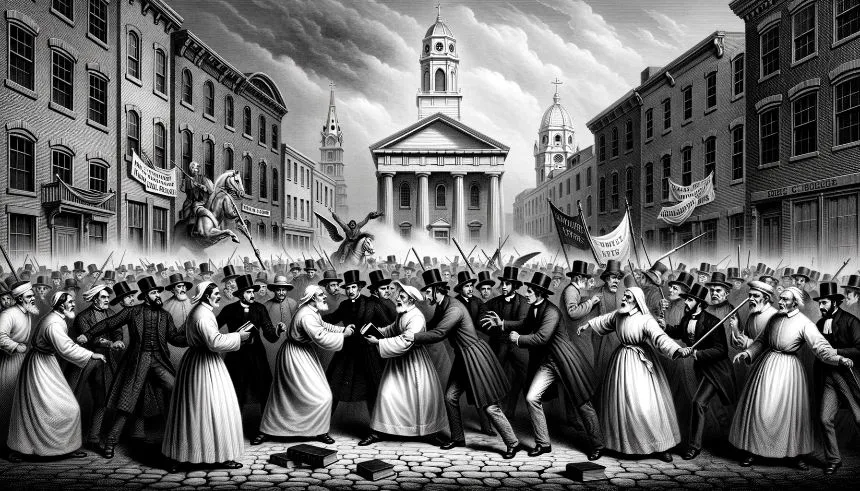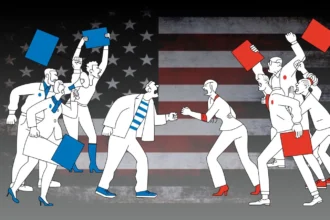Overview of the Book’s Contributions
Cas Mudde’s book serves as a comprehensive guide to understanding far-right politics, targeting both academic scholars and the general public. The author covers a broad spectrum of topics, including the history of radical right movements, their ideological underpinnings, organizational structures, and public perception.
This multi-faceted approach provides readers with a holistic view of the subject, making the book a go-to resource for anyone interested in far-right politics. The book concludes with twelve hypotheses that shed light on the current “fourth wave” of far-right politics, offering a forward-looking perspective. Additionally, the book features an appendix that includes a timeline and a glossary, further enhancing its educational value.
Conceptual Framework
Mudde’s conceptual framework is a standout feature of the book. He clearly distinguishes between “radical” and “extreme” right-wing politics, providing nuanced definitions that help readers understand the complexities involved. He also introduces the term “nativism,” defining it as a xenophobic form of nationalism.
The book is instrumental in debunking several myths about the rise of the populist radical right.
Mudde goes a step further by coining the term “populist radical right” to describe a form of “pathological normalcy.” This term captures the essence of far-right politics as a radicalization of attitudes that are also present in mainstream politics. This conceptual clarity serves as a strong foundation for the rest of the book.
The Radical Right: Correcting Misconceptions
The book is instrumental in debunking several myths about the rise of the populist radical right. Contrary to popular belief, Mudde argues that the movement’s supporters are not just from the working class but come from various social strata.
He also challenges the idea that the political impact of the movement is both direct and substantial. Mudde argues that the influence of the populist radical right is more nuanced than commonly perceived. Contrary to the notion that these movements immediately enact xenophobic or authoritarian policies, Mudde suggests that their impact can often be more subtle and manifest in indirect ways, such as shifting public discourse or pressuring mainstream parties to adopt more extreme stances.
Additionally, while the populist radical right’s rise is undeniably significant, Mudde contends that its political impact is often more limited than assumed. For instance, they may lack the power to enact substantial legislative changes or may be constrained by democratic institutions. This nuanced view adds depth to our understanding of the populist radical right’s role in contemporary politics.
Unanswered Questions and Future Research
Mudde’s book offers a fresh perspective by not fixating solely on populism. He argues that nativism and authoritarianism are the key elements that define the far-right end of the political spectrum. This analytical depth is refreshing because it questions the overemphasis on populism as the central concept for understanding far-right politics. Mudde’s approach allows for a more nuanced understanding, making it clear that focusing solely on populism can be reductive.
The book serves as a catalyst for further academic inquiry by highlighting gaps in existing research. It prompts scholars to consider new questions that have emerged due to the evolving state of the populist radical right.
Mudde argues that the rise of the populist radical right is a significant threat to liberal democracy, particularly affecting minority rights, the rule of law, and the separation of powers.
For instance, the book suggests that future research could focus on the role of far-right players in the debate over climate change and examine their policies when they are in power. These emerging topics are crucial for a more comprehensive understanding of the subject.
Threat to Liberal Democracy
Mudde argues that the rise of the populist radical right is a significant threat to liberal democracy, particularly affecting minority rights, the rule of law, and the separation of powers.
However, he also acknowledges that the discourse often neglects other factors that undermine liberal democracy, such as globalization and socio-economic inequality. This balanced view adds another layer of depth to the book’s analysis.
Conclusion
In summary, Mudde’s book is an invaluable resource that offers both academic rigor and accessibility. It reaffirms the importance of Mudde’s own theories while also providing an opportunity for scholarly reflection. The book makes a significant contribution to public discourse by offering clarity and depth, making it a must-read for anyone interested in far-right politics.
Adapted from an academic article for a wider audience, under license CC BY 4.0














